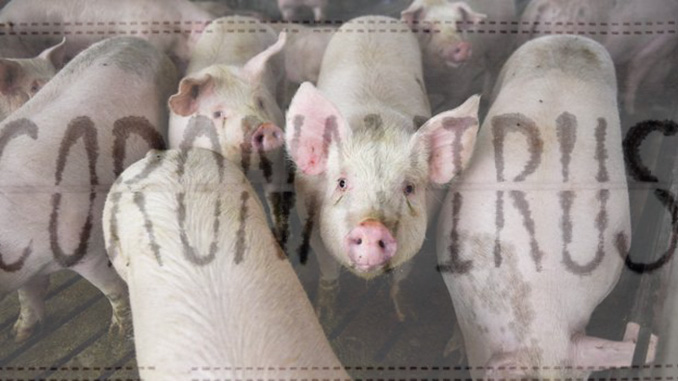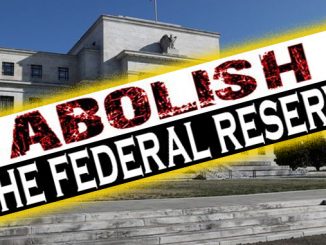
By Mark Anderson
On Capitol Hill, a languishing piece of legislation known as the PRIME Act—H.R. 2859, the Processing Revival and Intrastate Meat Exemption Act, now sitting in the House Subcommittee on Livestock and Foreign Agriculture—may be getting a new lease on life. If signed into law and implemented, this legislation could put an end to meat shortages in the grocery stores tied to the coronavirus response while improving the quality of meat and shortening supply chains in the process.
According to the Texas-based Farm and Ranch Freedom Alliance (FARFA), Americans need to place calls to Washington (202-224-3121 or 225- 3121) to give the PRIME Act the best possible chance of becoming law. FARFA explains: “Current federal law requires farmers who raise and sell livestock to use either a USDA-inspected slaughterhouse facility or a state-inspected facility that meets the USDA standards. The USDA regulations are very expensive and geared towards large-scale operations, which is why we have so few small federal or state-inspected slaughterhouses. Lack of inspected slaughterhouses is one of the biggest barriers for small-scale livestock producers. The lack of reasonable access to a slaughterhouse keeps some farmers from selling their meat at all.”
“Our best shot right now is in the Senate, which is still considering what to include in the next Covid relief bill,” a June 3 FARFA news release noted, while adding that calls to the House would be helpful, too.
First introduced by Rep. Thomas Massie (RKy) in 2014 and reintroduced again in 2019 as H.R. 2859, now with 47 cosponsors, the bill would amend the Federal Meat Inspection Act to clear the way for expanding markets for small “custom” slaughterhouses.
“There is a much greater chance of this passing now,” FARFA Executive Director Judith McGeary told AFP June 5. “We have possibly several million animals now being killed off and wasted because of the consolidation of the [meat] industry. Now there’s an awakening about the big meat packers,” she said, referring to the way such packers have consolidated control over the industry.
McGeary continued: “The need to diversify and re-localize our meat supply is something advocates have been talking about for two decades. Advocates like myself predicted a crisis like this… We knew this would happen. The PRIME Act [is] an important piece of fixing the system.”
While some small farmers are going months without income, consumers are seeing meat prices skyrocket. At the same time, custom slaughterhouses already operate safely in every state. But the core problem is that their market is limited. The meat processed in those facilities under current laws cannot be sold in conventional local market outlets.
FARFA summarized:
The PRIME Act opens up options for small livestock farms and ranches by removing the federal ban on the sale of meat from custom slaughterhouses within a state. These smallscale processors will remain subject to the basic federal regulations that already apply to them, as well as any additional provisions imposed by the states. At a time when we see empty grocery store shelves [of certain products]… this bill provides vital opportunities, and many long-term benefits… The PRIME Act supports local food production and small businesses, while also reducing vehicle miles traveled with livestock trailers, and helping to meet the consumer demand for locally raised meat.
FARFA’s outlook matches that of “R-Calf USA” cattle industry spokesmen Shad Sullivan of Texas, and Bill Bullard of Montana, both of whom have spoken with AFP on the meat shortages in common retail outlets.
Bullard, who’s R-Calf USA’s CEO, corroborated Sullivan’s data when he told AFP that over 700,000 U.S. cattle producers are dependent on the meat-packing plants of only four monopolistic meat-packing companies: Tyson, JBS, Cargill, and Marfrig (which bought out the National Beef Packing Company).
Since those four companies and the limited number of packing plants they own are the only available sales avenues when it comes to ranchers processing their harvest, a bottleneck is inevitable when a shutdown or slowdown comes along, regardless of the cause.
“Only now is America waking up to the fact that, for many decades, we’ve ignored the national food security interests of Americans; we displaced what used to be a family-farm system of agriculture that had millions of dis-aggregated producers. You had tens of thousands more feed lots for the cattle industry, and you had hundreds more meat packers scattered all across the United States. That was inherently a robust and resilient system that would not be subject to a crisis like we’re dealing with today, because there were more, smaller processing facilities,” Bullard explained to AFP.
Mark Anderson is AFP’s roving editor. Email him at [email protected].





